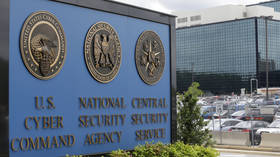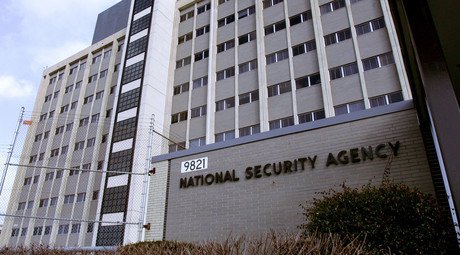NSA promises ‘no backdoors’ in new encryption

The National Security Agency’s cybersecurity chief has claimed that next-generation encryption standards under development in the US will be unbreachable, even by the American government's own spies.
“There are no backdoors,” Rob Joyce, the NSA’s director of cybersecurity, told Bloomberg in an interview on Friday. The agency has been involved in the process of developing the new standards, which are designed to protect data from future quantum computers, but Joyce promised there won’t be any deliberate flaws injected in the algorithms.
President Joe Biden’s administration has called for implementing quantum-resistant cryptography protecting sensitive data across the US economy by 2035. The National Institute of Standards and Technology (NIST) will provide the new algorithms underpinning that cryptography.
The NIST has been running a public competition since 2016 to choose the best algorithms and is expected to announce the winners soon. In 2020 the institute has whittled the entries down to seven finalists from around the world.
After selecting the winners, the NIST plans to turn them into the new public encryption standards by 2024. Choosing the algorithms through an open competition is meant to “build trust and confidence,” Joyce said.
The NSA didn’t submit any of its classified quantum-resistant algorithms for the contest. However, Joyce said, mathematicians from the agency have tried to crack top entries in the NIST contest to test their strength. “Those candidate algorithms that NIST is running the competitions on all appear strong, secure and what we need for quantum resistance,” he said. “We’ve worked against all of them to make sure they are solid.”
In 2014, an NSA-developed encryption algorithm was dropped as a federal standard amid suspicion that the agency had planted a backdoor. Two Microsoft employees reportedly uncovered a suspicious flaw in the algorithm.
Documents leaked by former NSA contractor Edward Snowden in 2013 showed that the agency was secretly surveilling telecommunications records of millions of Americans. A federal appeals court found in 2020 that the NSA violated the Foreign Intelligence Surveillance Act and that the surveillance may have been unconstitutional.
Other documents in the Snowden leak showed some NSA techniques for breaching encryption, stoking suspicion that the agency was using a backdoor in the algorithm it created.














